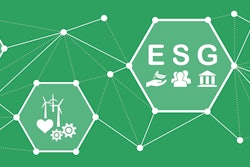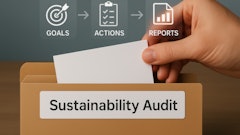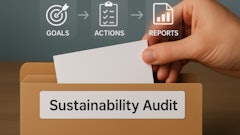
Environmental, Social, and Governance (ESG) priorities are top of mind for businesses. New regulations such as California's Climate Corporate Data Accountability Act are driving urgency around cutting carbon emissions, measuring Scope 3, and reporting sustainability impact.
Despite the growing regulatory focus on sustainability, there's a misperception that supplier diversity programs are taking a backseat. The truth is that ESG and supplier diversity go hand-in-hand: and top-performing companies have discovered that increasing visibility into supplier diversity is a valuable avenue for discerning the environmental, sustainable, social and carbon dimensions of suppliers.
To truly reap the benefits of responsible business, organizations must integrate both ESG and supplier diversity into their supply chain strategy. Fortunately, most businesses have upheld their supplier diversity commitments, recognizing that to achieve genuine cost savings, risk management, innovation and societal impact, the two must work together.
Elevating Supplier Diversity for Enhanced ESG Performance
Partnerships with small and diverse suppliers can offer advantages such as economic opportunities, increased customer and community connections, stronger supply chains, and improved ESG performance. Most importantly, diverse perspectives can lead to more creative sustainable solutions.
Most ESG leaders understand supplier diversity is a critical component of their strategy. According to Supplier.io’s 2023 State of Supplier Diversity Report, 55% of companies acknowledge the symbiotic relationship between ESG initiatives and supplier diversity programs. The notion that procurement teams must choose between ESG and supplier diversity investments is false. 69% of businesses report the current economic climate has had minimal impact on their supplier diversity programs, and 89% expect business support to stay the same or increase in the upcoming year.
Diverse Spend: A Catalyst for Resilient Business Practices
Investing in supplier diversity is more than a checkbox for Governance, Risk and Compliance (GRC). Companies embracing supplier diversity in their procurement strategy, position themselves as socially responsible and resilient entities in a competitive market.
Inclusive procurement strategies, incorporating more small or local businesses, minority and women-owned business enterprises (MWBEs) into supplier networks, help supply chains weather disruption and support cost savings, yielding year-on-year cost savings of up to 8.5% according to recent studies. Through data enrichment, businesses can cross-analyze diverse suppliers against sustainability criteria, strengthening the bond between corporate CSR and profitability.
Supplier diversity and ESG drive business decisions with measurable bottom-line impact. Recognizing the clear business case for viewing them as two sides of the same coin, a unified approach is essential. Procurement teams require a comprehensive, independently certified view of suppliers aligned with core values.
A Unified Approach for Maximum Impact
Fragmented data poses a challenge in assessing and prioritizing suppliers based on their sustainability rating or diversity certifications. Research found three of the top four challenges associated with supplier diversity programs today relate to data. Supplier diversity data is highly volatile, changing about 23% each year as certifications expire, ownership changes, or other developments shift a company's diversity status. Plus, there are over 5 million third-party sustainability ratings and diversity-oriented certifications that companies should check their suppliers against.
ESG data is also notoriously hard to track throughout the supply chain – especially Scope 3 emissions, which will soon be required for businesses to report. The threat of inaccurate data puts companies at risk of greenwashing or increasingly, falling out of compliance with government regulations. The key to responsible sourcing is visibility across crucial criteria, achievable through technology.
Comprehensive solutions, integrating global sustainability certifications, diversity information, and ESG policies, empower organizations to make data-driven decisions. A centralized approach to track, manage, and expand responsible sourcing enhances operational efficiency, ensuring diverse suppliers are integral to the business alongside environmental stewardship. Leaders can leverage data-driven insights to turn responsible sourcing into compelling narratives that demonstrate returns on investments. This level of visibility enhances operational efficiency, ensures diverse suppliers are a central part of environmental stewardship and ultimately, frees up leaders for their most important duty – supporting their business and people.
Better Together: Two Priorities, One Common Goal
The symbiotic relationship between ESG initiatives and supplier diversity programs is clear and imperative for responsible and resilient business practices. As companies navigate a shifting regulatory landscape, evolving economic climate, and rising societal expectations, it’s evident that businesses cannot effectively advance their ESG priorities without a concurrent commitment to supplier diversity.
Through a unified approach, businesses can utilize comprehensive and certified data to drive meaningful integration, align core values and ensure results for a sustainable, successful future.



















